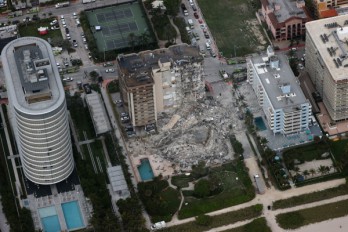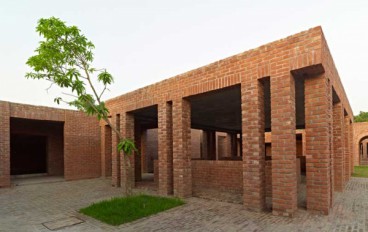Roof Collapse at Renovated Fengyang Drum Tower Prompts Structural Oversight Review


Want to read more like this story?

Structural instability leads to roof collapse at Grafton construction site
Nov, 14, 2025 | NewsA partial roof collapse at a construction site in the Town of Grafton resulted in injuries to three...

Two buildings collapse in London during renovation works
Nov, 09, 2020 | NewsTwo houses completely collapsed amid renovation works in west London, UK. The incident occurred o...

Roof collapse in Curtin University, Australia: 1 person dead
Oct, 20, 2020 | NewsOne person has been reported dead after a roof collapsed in a Curtin's University building, Australi...

Multistory building collapse in Miami
Jun, 25, 2021 | NewsAt least 1 person has been reported dead after a multistory building collapsed in Surfside, Miami, F...

Pre-demolition work linked to fatal boiler tower collapse in Ulsan
Nov, 06, 2025 | NewsA major industrial accident occurred at Korea East-West Power’s Ulsan Thermal Power Plant in Nam Di...

Bangkok 30 storey Audit Office Collapse Attributed to Construction Defects
Jul, 02, 2025 | NewsOn March 28, 2025, a 7.7-magnitude earthquake originating in central Myanmar caused the collapse of...

Four dead after tragic six-storey building collapse in central Madrid during hotel renovation
Oct, 08, 2025 | NewsAuthorities in Madrid have confirmed the deaths of four people following the partial collapse of a...

Historic tower collapse in Rome claims one life
Nov, 03, 2025 | NewsA 66-year-old construction worker, lost his life following the partial collapse of the Torre dei Co...

Tilted Structure in Kolkata, the Inferior Materials and Red Flags on Construction Standards
Jan, 14, 2025 | NewsIn a densely populated area of Kolkata, a four-story building in Vidyasagar Colony, Ward 99, Jadavp...
Trending

Taipei 101’s impressive tuned mass damper

Characteristics of Load Bearing Masonry Construction

China Completes World’s Longest Expressway Tunnel, Redefining Connectivity

The Line at Neom faces feasibility reassessment while construction continues




